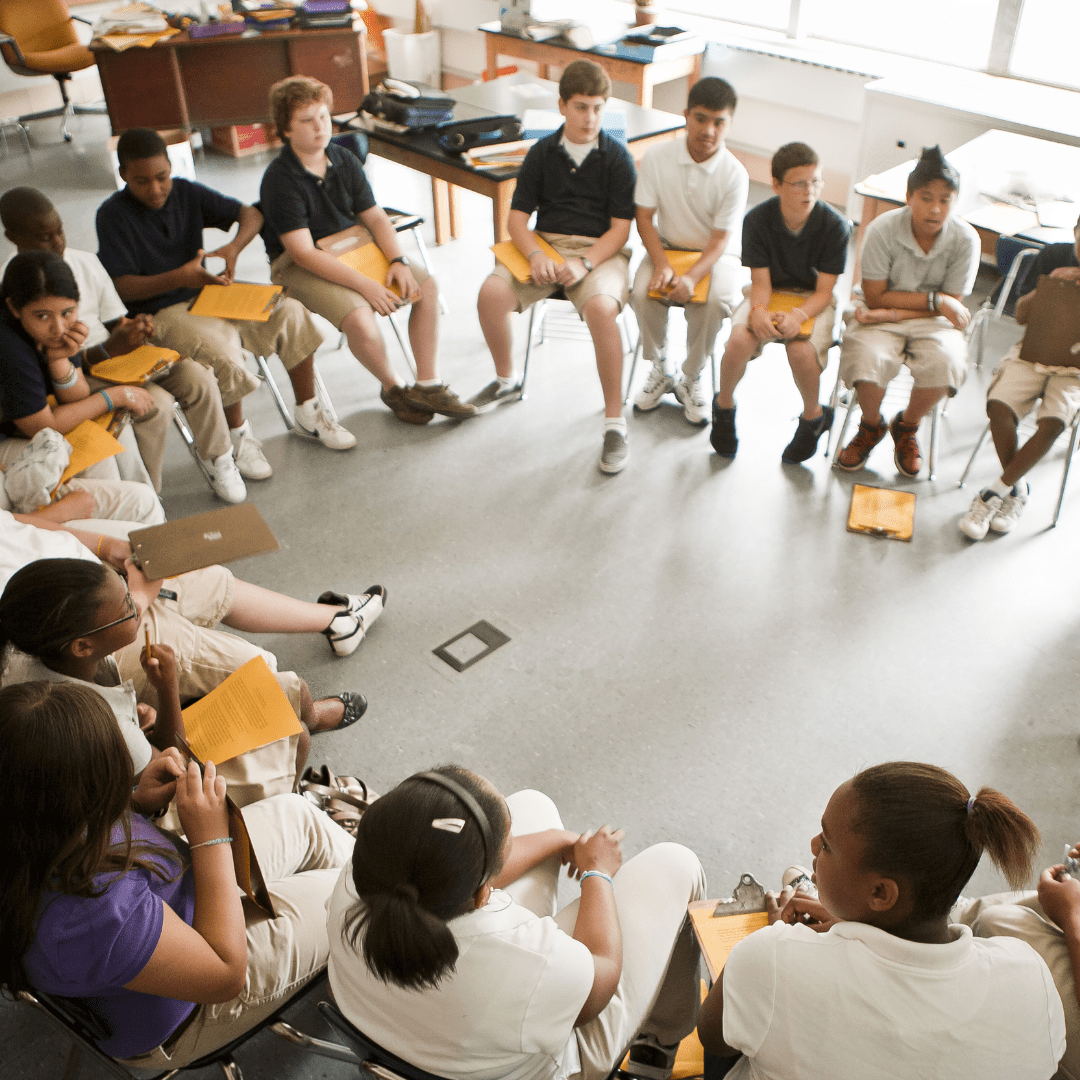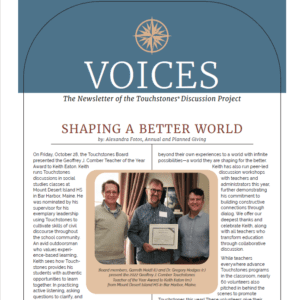Touchstones Democratizes Education
By Howard Zeiderman, Co-Founder and Director of Leadership Programs
‘Touchstones democratizes education.’ Rick Vanosdall, Dean of the College of Education at MTSU, first said this as he reflected on his experience with his colleagues, the teachers they prepare, and the teachers’ reports from their classrooms.
In Touchstones, all participants in the weekly hour-long classes enter a new landscape. There, the high achievers learn to examine and modify their own most salient assumptions. They become capable of listening and more able to learn from all their peers. The marginalized recognize that they, too, have essential talents and necessary skills. This revelation can frequently reanimate their engagement with their education. Each participant unlocks the self-respect needed to explore creatively, learn from one another, and develop the mutual respect required to form a community. Touchstones transfers power and responsibility from the lecturing leader – the teacher, the expert – to the entire group. Thinking ceases being a solitary activity. Rather, it becomes the result of genuine collaboration. This new mode of activity is the prerequisite for flourishing in a 21st century world as leaders, workers, professionals and as citizens in a genuinely democratic society.
Rick’s comment summarizes in three words Touchstones’ more than three decades long mission and observation in 47 countries and with millions of participants. It can also become the core of a society we have all longed for.
Touchstones develops these new attitudes and skills through a carefully structured program involving short, unprepared, strategically selected texts as tools for increasing self-reflection, accompanied by self-assessments and group assessments of discussion dynamics, and a sequence of leadership activities through which power and responsibility are increasingly shared. The participants gradually move through a well-defined, four-stage process in order to become a genuine discussion group. The result of Touchstones is a group of participants who share in the leadership and undertake collaborative exploration with their peers and their discussion leader.
Touchstones has been implemented in Grades 2 through 12 as well as in college courses and in communities. It has touched the lives of more than five million participants in 47 countries, and it has been translated into six languages. The Touchstones environment is a crucible in which many traditional skills emerge; critical reading, the articulation of ideas, the marshaling of evidence, and increased empathy evolve and are heightened for all students. Most crucially, however, a new set of skills and attitudes form, ones that we now recognize are fundamental and essential for engagement in the emerging landscape of the 21st century. These are skills and attitudes we all need and have always needed to be more fully human, yet are also increasingly necessary in today’s globalized world: the ability to teach oneself, the understanding that thinking is a collaborative activity, the recognition of one’s own presuppositions, and the willingness to share power and responsibility.
Touchstones is designed as a new foundation for education. It is not a replacement for the traditional lecture- and teacher-centered mode of education, but rather acts to pervade and animate these traditional modes by collaboration. Through Touchstones, teachers once again can become educators and not mere technicians. Students can finally become inhabitants of a world and not mere products. Education must be truly democratized to take all students as future engaged and reflective citizens to a place that none of them have previously achieved. In short, Touchstones democratizes education and helps make democracy a viable ideal.




 Join the
Join the